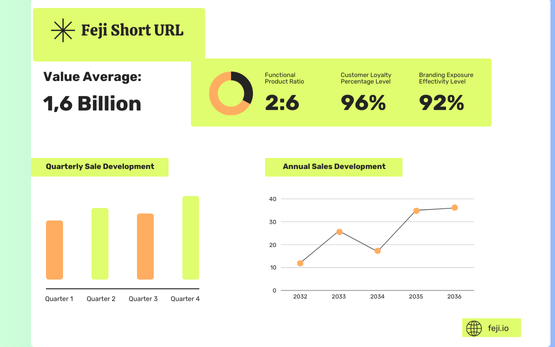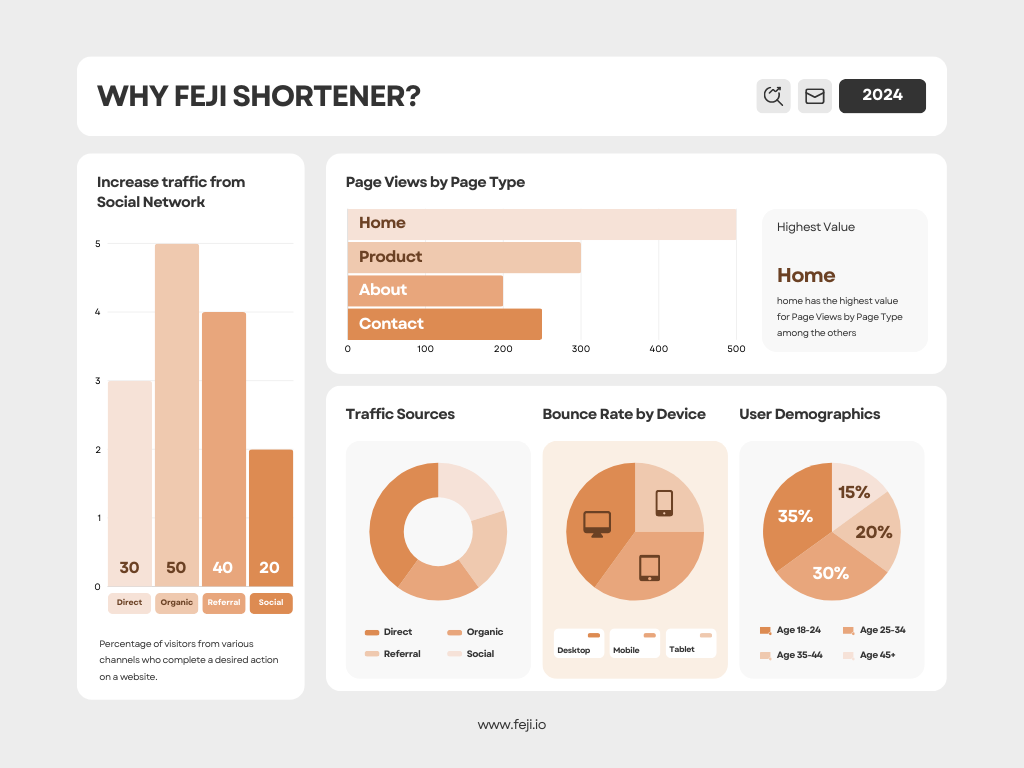Have you ever wondered which is faster: typing a URL directly into the address bar or searching for it on Google? It’s a small decision that we make every day without giving it much thought. But in a world where speed and efficiency matter, it's worth asking: should you "search Google or type a URL" for faster access to the web? In this article, we’ll dive deep into the pros and cons of each method, offer practical instructions for both, and compare which one is faster and more convenient with specific examples.
What Is a URL?
Before we compare the speed of these two methods, let’s first understand what a URL is. You’ve probably used URLs thousands of times, but do you know how they work?
How URLs Work
A URL, or Uniform Resource Locator, is essentially the web address of a site. Think of it like a phone number for the internet—it directs you to a specific website without needing any middlemen. When you type a URL into your browser, your device connects directly to the site, loading it immediately (assuming it’s typed correctly).
Why URLs Matter in Browsing
URLs are a direct path to your desired destination. If you already know the exact site you want to visit, typing the URL is a quick way to get there without any distractions. But, of course, it requires accuracy, just one typo and you might end up somewhere completely different.
What Is Google Search?
Google Search, on the other hand, acts like a digital librarian for the internet. Rather than connecting you directly to a specific site, it shows you a variety of results related to your query.
How Google Search Functions
When you type a query into Google, its algorithm crawls billions of web pages to deliver the most relevant results. Google uses a variety of factors to rank these results, such as keyword relevance, user behavior, and site authority.
When to Use Google Search
Google Search is perfect when you’re unsure of the exact website or when you want to explore multiple sources. For instance, if you’re looking for reviews of a product, Google Search can show you a wide range of opinions, giving you a broader perspective.

How to Search on Google or Type a URL
Now that you understand the basics, let’s walk through the steps for using each method.
Typing a URL Directly
- Open your browser (such as Chrome, Firefox, Safari).
- Click on the address bar at the top of the browser window.
- Type the full web address (e.g.,
www.example.com). - Press Enter, and the website will load.
Example 1: Visiting Facebook Directly
- Type the URL: Open your browser and type
www.facebook.com. This takes you directly to the Facebook homepage. - Speed Comparison: Typing the URL takes you instantly to Facebook without distractions, as long as it's entered correctly.
Searching on Google
- Open your browser and go to the Google homepage or use the search bar integrated into the browser.
- Type your search query (e.g., “Facebook”).
- Press Enter.
- Choose the appropriate search result from Google’s list.
- Click the link, and the site will load.
Example 2: Searching for Facebook on Google
- Search Query: Type “Facebook” into Google’s search bar. Google will return a list of results, with Facebook likely being the first link.
- Speed Comparison: While Google finds Facebook for you, navigating through the search results adds a couple of steps to the process.
The Speed Test: Searching vs. Typing a URL
Let’s compare the two methods in terms of speed and convenience.
Typing a URL: Instant Direct Access
Typing a URL into your browser means you're cutting out the middleman. There’s no need to sift through search results or guess which link to click. If you know the exact site, typing a URL is the quickest and most efficient route.
- Example: Typing
www.twitter.comwill take you straight to Twitter. - Time Saved: You’re at your destination immediately without additional steps. The downside? Typing long or complex URLs can be slower, especially if you make a mistake.
Using Google Search: Navigating Through Results
Google Search can be fast, especially with a strong internet connection. You type a few keywords, and Google serves up a list of results. But while Google is quick, it introduces an extra step: after seeing the results, you still need to click on the link and wait for that page to load.
- Example: Searching “Twitter” in Google might return Twitter as the top result, but you still have to click the link.
- Time Saved: Google is useful if you don’t know the exact URL, but it adds extra steps that can slow the process.
When Google Search Feels Faster
If you’re unsure of the exact URL or need information from multiple sources, Google Search can feel faster because it gets you closer to your answer without you needing to guess the correct URL.
When Typing a URL Wins
Typing a URL is unbeatable when you know exactly where you’re going. It eliminates distractions and gets you directly to your destination.
Factors Affecting Browsing Speed
Several factors can affect how quickly you access content, whether you’re searching on Google or typing a URL. Let’s take a look at a few of them.
Internet Speed
Regardless of your method, browsing speed is always affected by your internet connection. Faster internet speeds mean both searching and typing URLs will load more quickly, while slower connections might make even simple tasks take longer.
Device Performance
A sluggish device can slow down your browsing experience. Whether you’re typing a URL or searching on Google, an older or overloaded computer will affect how quickly pages load.
Browser Efficiency
The type of browser you use can also influence speed. Some browsers are optimized for faster searches and quicker URL loads, so it's worth choosing one that’s designed for efficiency.
The User Experience: Which Feels More Efficient?
Ultimately, speed is subjective, and the experience of browsing efficiency varies from person to person. While some may find typing a URL faster, others might feel that using Google Search is the way to go. It all depends on the situation.
For Quick Information
If you need quick information, Google Search might feel faster. Why? Because instead of navigating directly to one site, you can quickly compare multiple sources.
For In-Depth Research
However, if you’re conducting in-depth research and know the exact site you need, typing the URL can save you time. It’s like taking the express lane directly to your destination.
The Importance of URLs and Search
Both typing a URL and using Google Search have implications for SEO (Search Engine Optimization).
URL Keywords for SEO
Having a keyword-rich URL can help a website rank higher in Google searches. URLs are important signals that tell both users and search engines what a webpage is about.
How Google Ranks Search Results
When you search for something on Google, the results are ranked by relevance, authority, and other SEO factors. Websites that have optimized their content for SEO tend to rank higher, making them more visible to users.
Which is Truly Faster?
So, which is fastera searching on Google or typing a URL? The truth is, it depends on the situation. If you know the exact destination, typing the URL will likely be quicker. However, if you need to explore different options or don’t know the specific URL, Google Search might save you time in the long run.
At the end of the day, both methods have their place in the browsing world. For instant, direct access, typing a URL is the fastest route. But for exploring multiple sources or when you’re unsure of the destination, Google Search might feel faster and more efficient. It all boils down to what you’re looking for and how much time you want to spend getting there.
FAQs
1. Which is better for SEO: URLs or search terms?
Both are important! Optimizing URLs for keywords helps websites rank better, but using relevant search terms is key for driving traffic.
2. Can a typo in a URL slow down my browsing?
Absolutely! A single typo can lead you to the wrong page or cause an error, slowing down your browsing experience.
3. Is Google Search faster than typing a URL?
It depends. Google Search can feel faster when you're not sure of the exact URL, but typing the URL is quicker for direct access.
4. Does browser choice affect speed?
Yes, some browsers are more efficient and faster at loading URLs and search results, so it's worth choosing one optimized for speed.
5. What impacts browsing speed more: internet or device?
Both matter. A slow internet connection or an underperforming device can significantly slow down your browsing experience.

 Vietnamese
Vietnamese









Nguyen Hoai Thanh
Nguyen Hoai Thanh is the Founder and CEO of Metaconex. With 12 years of experience in developing websites, applications and digital media, Nguyen Hoai Thanh has many stories and experiences of success to share.